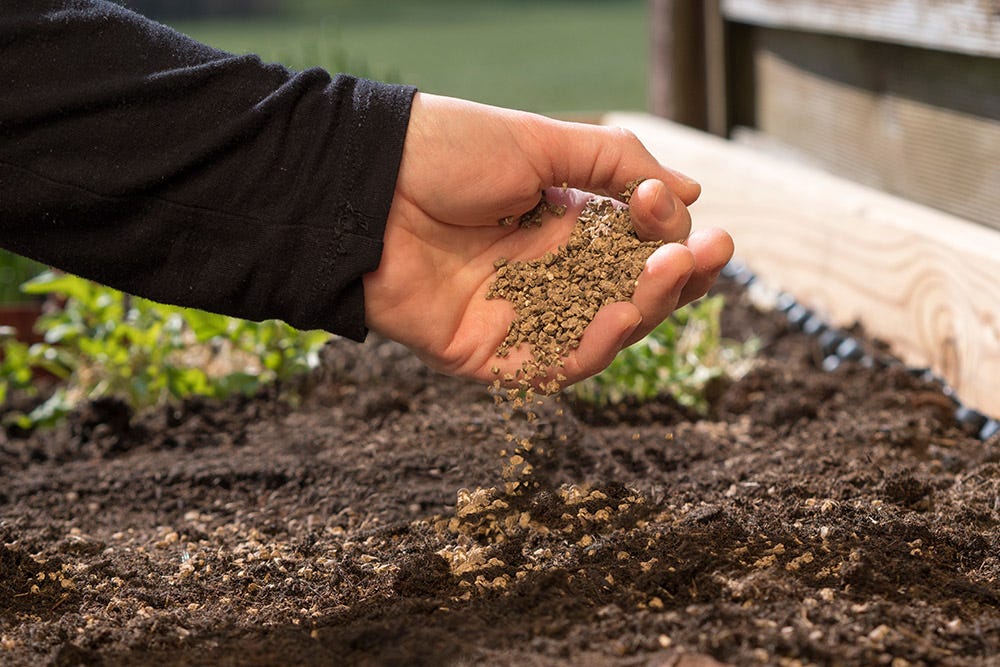- Maintenance tips & tricks
- 4-season garden care advice
- News from the gardening world
- STIGA innovations & new product launches
FREE delivery on selected models
Free returns
Premium delivery available
FREE delivery on selected models
Free returns
Premium delivery available
Spring is the most active growing season of the year. Plants that have been lying dormant through the cold winter are waking up and may need extra food. Follow our guide on using fertilisers – and help your garden get fit and ready for summer and the long blooming phase ahead.

To stay healthy and resilient against pests and disease, plants must absorb a balanced range of nutrients through their roots. These occur naturally in the soil, but for plants that use up a lot of energy, applying fertiliser is a simple and effective way to boost growth.
The three major macro-nutrients growing plants need are N (nitrogen), P (phosphorus), and K (potassium), while micro-nutrients such as calcium, iron and boron are essential for developing flowers and fruits.
Choose a fertiliser that’s described as complete, NPK or ‘general purpose’ to ensure your plants get all the necessary nutrients. These fertilisers come as pellets, granules, powder or in liquid form.
Select the format that suits your gardening routine. With granular or powdered fertiliser, you’ll only need to spread it over or dig it into the soil every two to three months. Concentrated liquid fertilisers take effect immediately, so need applying more often – sometimes every week during the growing season.
Avoid spreading fertiliser if the weather forecast indicates rain for a few days. The fertiliser will leach too deeply into the soil and risks polluting groundwater sources, as well as the micro-organisms that live in the soil.
Always water the lawn after spreading powdered fertiliser. This allows the granules to travel down into the soil and avoid any chemical burning of the leaves.
Plants only take up nutrients in moist soil. So, if they are showing signs of nutritional deficiency in dry conditions, they might just need watering rather than extra food.
Organic fertilisers are made with plant or animal products, making them the more sustainable, greener choice. They feed both the plant and the soil – so are better for long-term plant growth and wildlife.